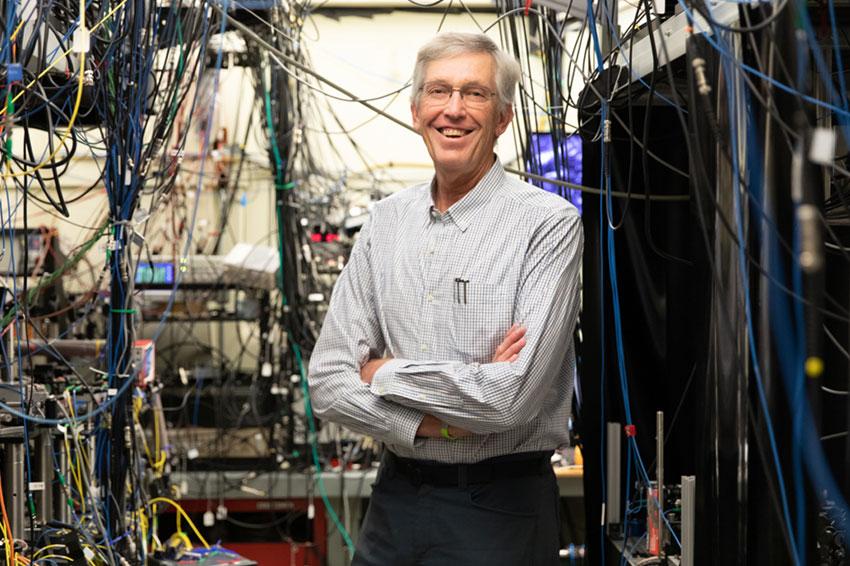Jeff Kimble recognized for contributions to quantum optics
28.06.2024 - Optica names inaugural Leonard Mandel Quantum Optics Award recipient.
The society Optica has named H Jeff Kimble, California Institute of Technology, USA, the recipient of the 2024 Leonard Mandel Quantum Optics Award. Kimble is recognized for his ground-breaking work on the quantum interactions of light and matter and for establishing the core technologies based on squeezed light for quantum sensing and quantum communications.
“Jeff Kimble is a luminary in the field of quantum optics, whose work has pushed the frontiers of quantum phenomena,” said Gerd Leuchs, Optica’s 2024 president. “His contributions will have a lasting impact on our field.”
Established in 2023, this award honors Leonard Mandel for his seminal contributions to the field of quantum optics and for advancing our understanding of the quantum aspects of light. It recognizes distinguished contributions to the foundations of statistical and quantum optics, and/or applications in advanced technologies. Mandel received Optica’s highest award, the Frederic Ives Medal / Jarus W Quinn Prize, served on the board of directors, and was an associate editor of the Journal of the Optical Society. This new award expands his impact by honoring discoveries and milestones in the field he helped to establish.
Kimble received his PhD in physics from the University of Rochester, USA. He was an assistant, associate, and full professor of physics at the University of Texas Austin, USA, before joining the California Institute of Technology faculty. He held the William L Valentine Chair professorship until 2021 when he became a professor emeritus.
Kimble’s research areas are quantum optics, quantum metrology, and quantum information science, including the creation of manifestly quantum states of the optical field, and its application to optical interferometry and atomic spectroscopy with measurement sensitivity beyond the standard quantum limit. His scientific legacy is also reflected in his achievement of strong coupling in quantum systems, particularly via the study of cavity quantum electrodynamics.
He has received many academic honors and recognitions, including doctor scientiarum honoris causa from the University of Copenhagen, Denmark, and honorary professor from Nanjing University, China. He is a member of the National Academy of Sciences (NAS), a fellow of Optica, the American Association for the Advancement of Science and the American Physical Society (APS). Some of his most notable prizes include the Max Born Award, the Herbert Walther Award, the Einstein Prize for Laser Science, the Albert A Michelson Medal and the Julius Lilienfeld Prize.





